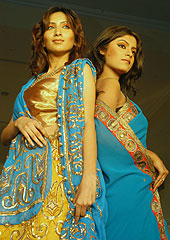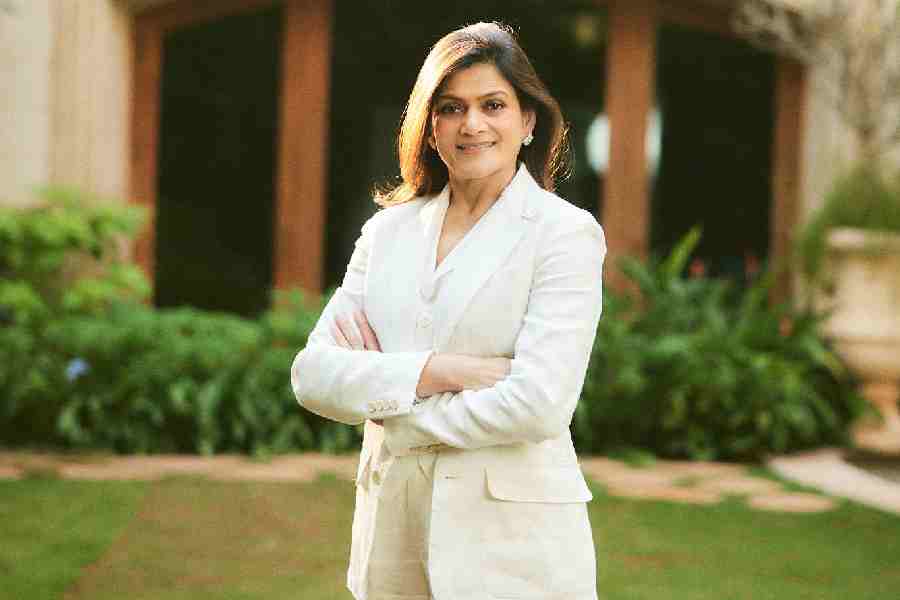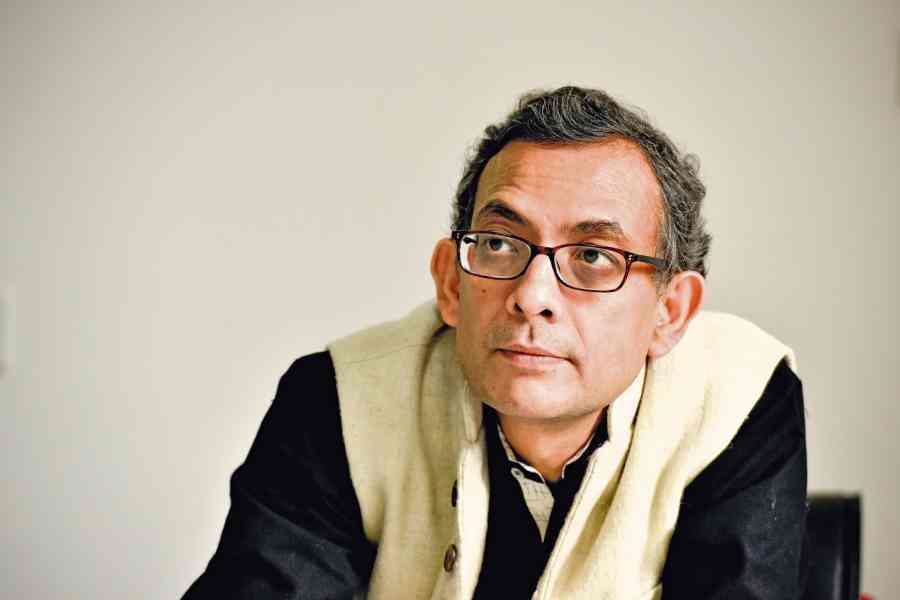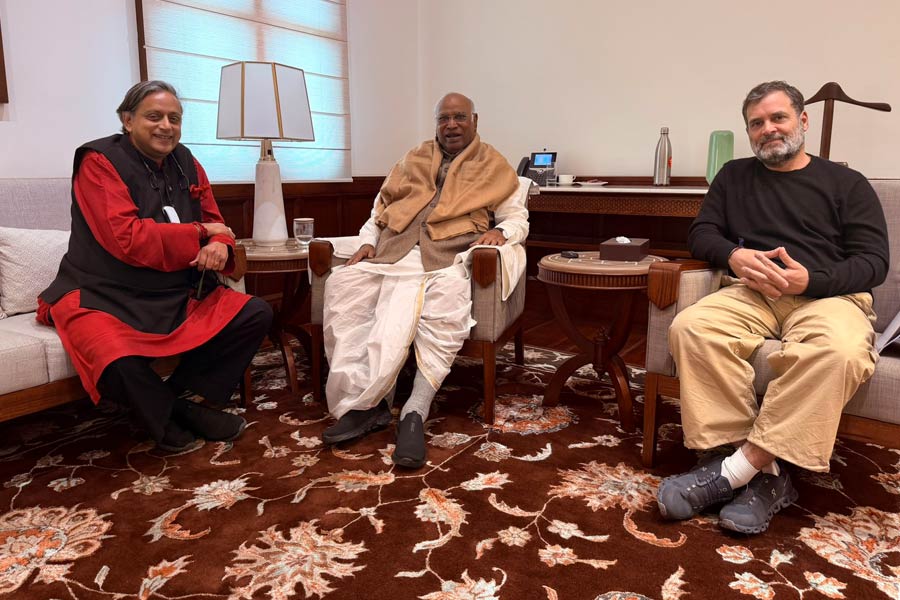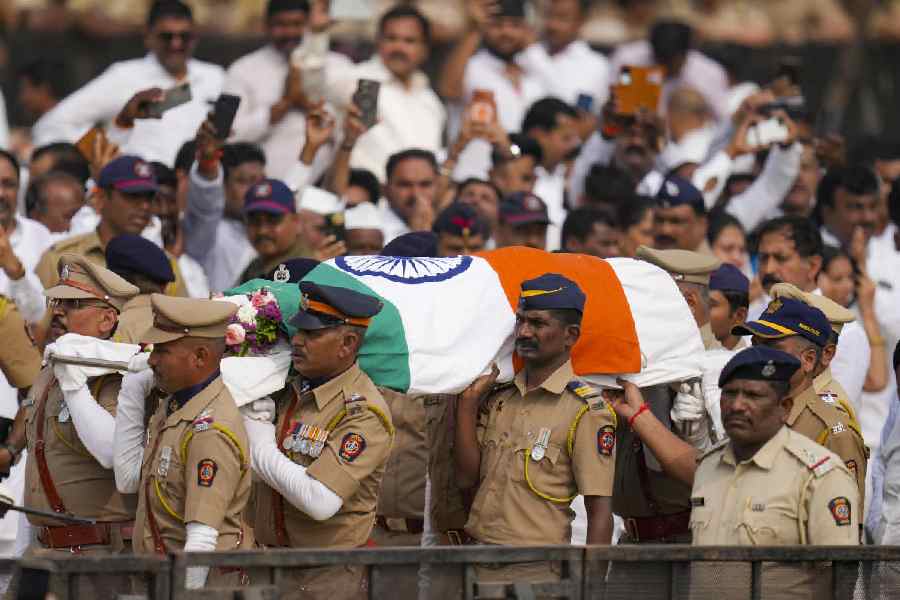 |
| INSIDE OUTSIDE: Fashion shows with female models (above) are welcome in Calcutta Club, but admitting women as members remains a taboo; and (below) the club building |
 |
Sitting on a sofa in the spacious lounge of Calcutta Club on a rainy afternoon, Rita Roy can order a steaming cup of coffee for herself and ask for extra cream and sugar for her guest. She does so. She can take her pick from the club’s bakery ? fresh-from-the-oven-brownies and muffins, cakes and cookies ? and have some packed to take home. She does that too. Rita Roy, whose husband is a permanent member of the century-old club, is not a member herself. But by virtue of being a member’s spouse, she can do practically everything that an outsider cannot. She can swim in the club pool, work out at the club gym and browse through books at the club library.
She can, in short, have her cake and eat it too. But while Rita Roy is not exactly complaining, neither is she all that content with her lot. The reason? “Well, I am here as a wife, not as a person in my own right,” she explains. And no, try as she might, she cannot become a direct member, at least, not as things stand now.
That’s because the club does not extend membership to women.
“What,” asks an incredulous woman public transport commuter, randomly selected for reaction. “In this day and age, an individual is denied membership of an organisation because of her gender? And that too in the middle of a so-called progressive city like Calcutta?”
Mumbai-based filmmaker Bela Segal is equally stunned to hear it. She herself is an indirect member of a couple of clubs, where her husband, Deepak Segal, senior vice-president of Star Television, Mumbai, holds permanent membership. But that, she says, “is out of choice and because economically, it doesn’t make sense for both to be members when you can enjoy most of the privileges as the member’s spouse. But the option should be open to women.”
Seema Bahety, director of marketing services of Beauty Concepts Private Limited, dealers in exclusive foreign merchandise, who is the wife of industrialist Rajiv Bahety of the Tims group, and a direct member of several clubs in Calcutta, agrees. “I think clubs in our country should try and revise obsolete rules that discriminate against any group, be it in terms of religion, gender or otherwise,” she says.
It was precisely this issue, that of women’s right to equal opportunity in society, that led Kalyani Chaudhuri, principal secretary of the Public Works Department, Government of West Bengal, to raise questions about Calcutta Club’s practice of limiting membership to men only. She spelt out her reservations to the club authorities when, last year, they approached the PWD, on whose land the club is housed, to sanction plans for a building extension.
“I pointed out that the department couldn’t grant further privileges to an organisation that seemed to violate the basic rights of an individual, who in this case happens to be any woman who might want to apply for membership.”
Denying media reports that she herself had sought to become a member of the club, Chaudhuri says, “It is the PWD’s responsibility to seek an explanation if it has reason to believe that sections of society are being discriminated against.”
Calcutta Club, of course, has its own set of reasons for not allowing women to become members. Says S.N. Banerjee, chief executive officer and general secretary of the club: “We are just following conventions. The club was set up in 1907, a time when few women would think of taking part in many of the club’s activities. And you have to remember that its constitution was framed accordingly.”
But, as some point out, that was then and this is now. Fashion designer Pali Sachdev, part-owner of the Monapali designer label, says that when women have stormed most of the traditionally-held male bastions, not to extend membership to women connotes a reluctance to acknowledge their achievements. “Since club membership is still a sort of a stamp of achievement, a so-called prerogative of the privileged, the exclusion of women is totally baseless,” says Sachdev. That is one of the reasons, she says, the Calcutta Cricket & Football Club (CC&FC) decided to open its doors to women in 2001. That’s when Sachdev became a permanent member of the club. “Maybe, the realisation came late to CC&FC, but better late than never,” she says.
Some are surprised by Calcutta Club’s steadfast adherence to these “discriminatory” regulations, considering that it came into being as a reaction to the “discriminatory” rules of Bengal Club, Calcutta’s first social club set up by the British, that kept Indians out.
Says Manashri Ghosh, a homemaker who regularly plays golf at Calcutta’s Tollygunge Club, of which she is a member: “With that kind of history, Calcutta Club is the last club you’d expect to discriminate on any basis, least of all on the basis of gender.”
While pointing out that “all clubs have their individual criterion for selection,” her friend and fellow golfer, Anju Chopra, who has become a permanent member of Royal Calcutta Golf Club (RCGC), agrees that “the criterion should not be gender”.
But there are others, not surprisingly, most of them men, who believe in keeping the old club tradition alive. For instance, Ashok Jha, a permanent member of Calcutta Club, admits that he doesn’t really know whether he’d vote in favour of admitting women members, if the question ever arose. “I’d have to think about it,” he says. “I don’t know if I’d go against tradition.” But Susanta Chatterjee, a former Calcutta High Court chief justice, is more mellow than militant when he says jokingly, “There was a time when men used to get away to the club to do bad things like drink, which their better halves didn’t approve of. So how could you bring them along?” But one disapproving look from his wife and daughter, both of whom are present, and Chatterjee hastens to add, “But I believe that life is like a bird and men and women are like its two wings. You need both for a smooth flight.”
The younger generation of men thinks differently, though. For instance, Sandip Sen, who is going off to study at Texas University come September, and who comes to play tennis at Calcutta Club where his father is a permanent member, says that not allowing women to become members is plain “old-fashioned”.
But for club authorities, “old-fashioned” is another word for tradition, which is cited as one of the main reasons for sticking to the male-only regulation. “Discrimination is not the club’s intention,” insists Banerjee, pointing out that there are indeed some provisions made for women, such as the extension of membership to widows of permanent members. He also points out that the club holds activities like fashion shows that are specifically aimed at women and girls.
There is also a ladies beauty parlour on the premises and special timings for women at the club’s health spa. And if you take a stroll around the club, you’ll bump into as many women as men, if not more. Yes, on the face of it , nothing seems to be wrong except that none of them has the right to vote.
But, there is light at the end of the tunnel or at least the spacious corridor of the Calcutta Club lounge. Banerjee reminds you that there was a time when women were barred entry to the club premises. That rule was gradually scrapped. “Who knows what the future may bring?” he asks. The questions being raised today may just be a tiny tremor in a coffee cup, but one day, Rita Roy may be able to order extra cream and sugar on her own steam.

